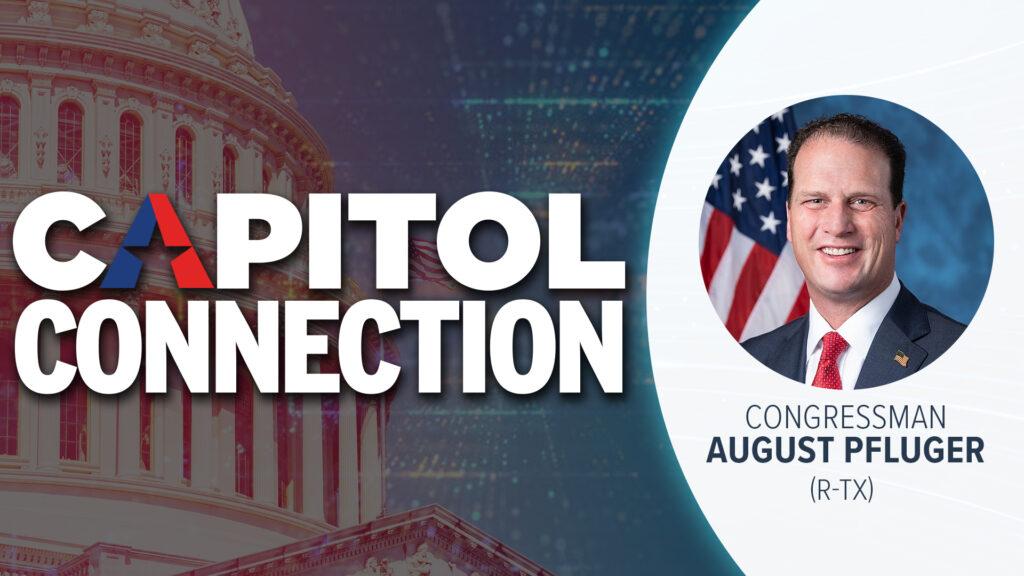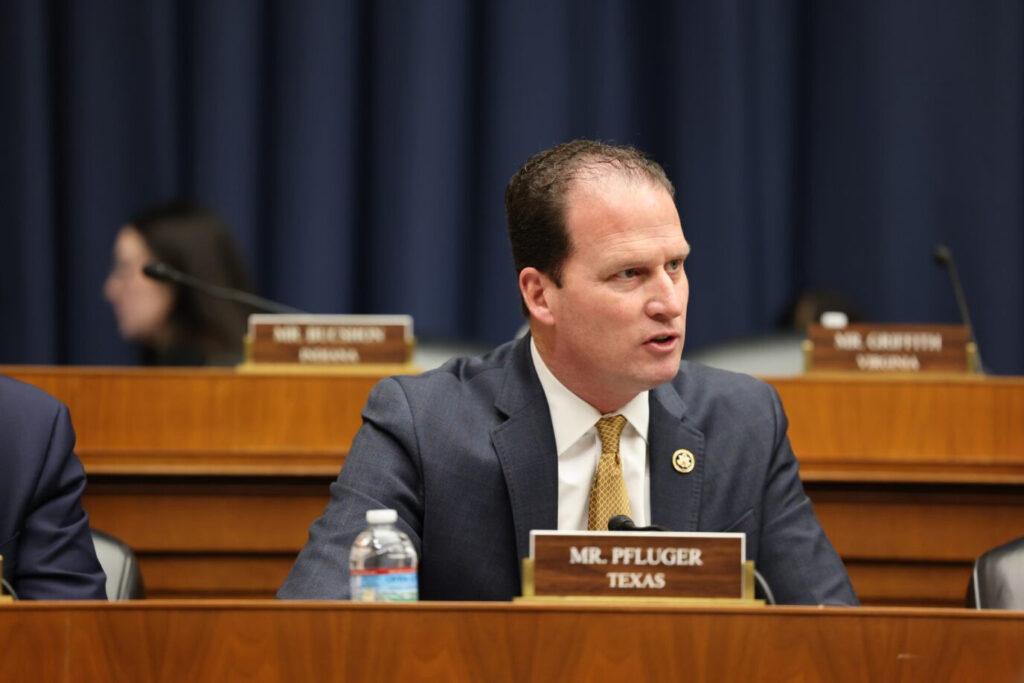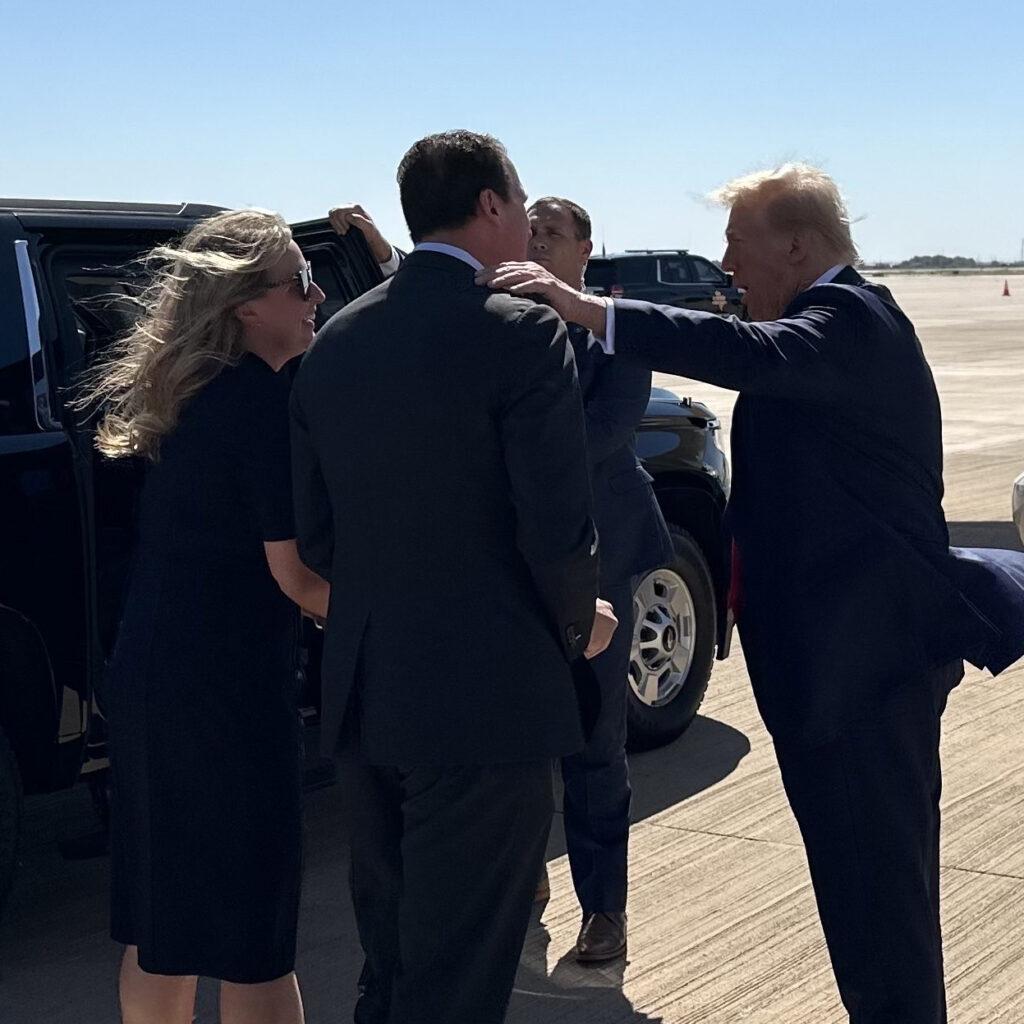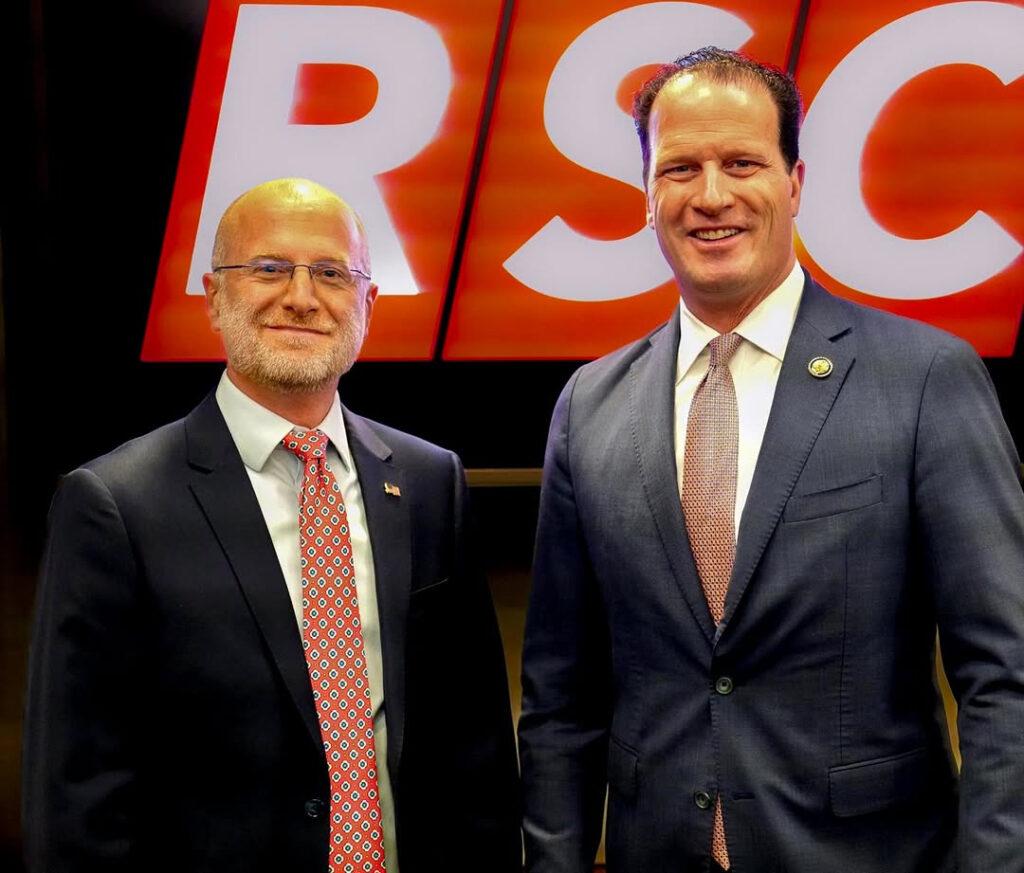
As part of ACA Connects President and CEO Grant Spellmeyer’s Capitol Connection series, Congressman August Pfluger (R-TX) shared how he is working to close the digital divide and secure America’s technological leadership.
Congressman August Pfluger proudly represents 20 counties in Texas’ 11th Congressional District. He served twenty years as a decorated fighter pilot, later as an advisor on the National Security Council, and retains his active status as a Colonel in the Air Force Reserves.
He is one of the strongest voices in the House leading on solutions to strengthen America’s homeland, economy, and energy security. As a member of the Energy and Commerce Committee and its subcommittee on Communications and Technology, he has a compelling story to share on the importance of a more connected America, particularly in rural communities. Don’t miss this special Capitol Connection, and be sure to learn more about Congressman Pfluger at Pfluger.House.Gov.
Q: Can you share with readers why you ran for Congress? Tell us about Texas’s 11th Congressional District.
From an early age, I was inspired to pursue a career in service by my two grandfathers, who served in World War II and were members of the ‘Greatest Generation.” After serving for over 20 years as a fighter pilot flying missions over the Middle East in the wake of 9/11, I continued my service career by serving on President Trump’s National Security Council during his first term. My brother and other family members encourage me to run for office and serve the district I grew up in after long-time Congressman Mike Conaway announced his retirement. I have now entered my third term and remain committed to serving Texas-11 and our country.

Rep. Pfluger serves on the influential House Energy and Commerce Committee and sits on its Communications and Technology Subcommittee.
Texas’ 11th Congressional District is the epicenter of energy, national, and food security. I represent 20 counties stretching from Odessa to Killeen, and my district is home to incredible, hard-working men and women who help keep our country energy dominant, our border secure, our grocery stores full, and much more. My district is home to key military bases such as Fort Cavazos in Killeen and Goodfellow Air Force Base in my hometown of San Angelo. My district is also home to the Permian Basin, the most prolific oil and gas producing region in the country. Texas-11 is the best place to live and raise a family, and it is the honor of a lifetime to bring our Texas way of life to Washington every single week.
Q. Why is bridging the digital divide and increasing broadband deployments important to people in your community?
Closing the digital divide is important to the people of Texas-11 because of the immense opportunities that come with it. Whether that’s small businesses being able to participate in ECommerce, remote communities having access to better health care through telehealth services, or people having more educational and workforce opportunities through internet access, all of these opportunities come from increasing connectivity through broadband infrastructure deployments. Several of the communities I represent are on the wrong side of the digital divide, and my job as their representative is to ensure that taxpayer-funded broadband infrastructure projects are going to the communities in need.
I have led several legislative initiatives to close the digital divide because it is what my constituents need. Whether through improving permitting and efficiency in the federal broadband deployment process through the Federal Broadband Deployment Tracking Act, increasing transparency and oversight with the Broadband Buildout Accountability Act, or enhancing interagency coordination and broadband mapping through the PROTOCOL Act. These efforts stem from not wanting my constituents and rural Americans to be left behind.
Q: What are your communications and technology priorities on the Energy and Commerce Committee?
My communication and technology priorities on the Energy and Commerce Committee are bolstering national security and expanding broadband to rural areas like my district. As a graduate of the United States Air Force Academy, a fighter pilot of 20 years, a National Security Advisor on the National Security Council under President Trump in 2019, and a current Colonel in the Air Force Reserves, protecting the national security interests of the United States of America is one of my top priorities in Congress. Our foreign adversaries will stop at nothing to jeopardize our national security through our digital infrastructure, and the United States must utilize every tool at our disposal to stop them.
Additionally, expanding broadband to rural areas like my district is extremely crucial. The digital divide hinders areas like mine and blocks them from various opportunities, which is why I am fighting to change this in Congress.
I swore an oath to support and defend the Constitution of the United States against all enemies, foreign and domestic. Through my work on the House Committee on Homeland Security and the House Committee on Energy and Commerce, I have led legislation to accomplish both goals to bolster our national security and expand broadband access.

Rep. Pfluger welcomes President Donald Trump to Texas.
Q: In addition to leading on telecom policy initiatives, you are a leader on pro-growth American energy solutions. How do you see both those issues intertwined to power America’s economy and technological future?
As our energy demands continue to surge over the next decade, driven by the rapid expansion of data centers and AI, we must ensure we have a reliable and abundant energy source to meet this growing need. Fortunately, we have that in natural gas, which already powers about 40% of our grid—a share that is only expected to rise. We must invest in the critical pipeline infrastructure necessary to deliver this energy efficiently and securely to keep pace with this demand. We must not only invest in the infrastructure itself but also cut through the bureaucratic red tape by streamlining the permitting process, ensuring that unnecessary delays don’t stand in the way of meeting our energy needs. It’s simple – the world is advancing technologically, and our energy needs are growing with it. Natural gas will be essential to powering that future.

Rep. Pfluger and FCC Chairman Carr during a Republican Study Committee meeting. Rep. Pfluger serves as Chairman of RSC for the 119th Congress.
Q: You are leading on a bipartisan bill with Rep. Darren Soto (D-FL) called The Federal Broadband Deployment Tracking Act. How will this help speed up broadband deployments?
The Federal Broadband Deployment Tracking Act will help speed up broadband deployments by requiring the National Telecommunications and Information Administration to submit a comprehensive plan to Congress within 180 days detailing how the agency will track the acceptance, processing, and disposal of broadband permitting applications on federal lands. These applications are essential for accessing easements and rights-of-way to build or maintain telecommunications infrastructure. Through this legislation, the NTIA will also be responsible for detailing how they will quickly implement their plan and any potential barriers they could face.
It is time to close the digital divide and create a more connected future for all Americans, and this legislation is a critical step to accomplishing this goal. By enhancing government accountability and accelerating broadband deployment, we’re not just improving a process – we’re investing in the future of our nation. The Federal Broadband Deployment Tracking Act will help ensure that investments in broadband expansion reach Americans more quickly and effectively.


